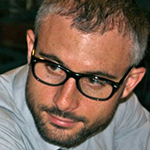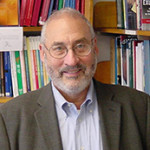SCUOLA SUPERIORE SANT’ANNA
 Giovanni Dosi is professor of economics and director of the Institute of Economics at the Scuola Superiore Sant’Anna. He also serves as director of the Industrial Policy and Intellectual Property Rights task forces at the Initiative for Policy Dialogue at Columbia University. Additionally, Prof. Dosi is a continental Europe editor of the journal Industrial and Corporate Change. He is included in the ISI Highly Cited Research list, denoting those who made fundamental contributions to the advancement of science and technology, and is a corresponding member of the Accademia Nazionale dei Lincei, the first academy of sciences in Italy. His major research areas – where he is author and editor of several works – include economics of innovation and technological change, industrial economics, evolutionary theory, economic growth and development, organizational studies. A selection of his works has been published in two volumes: Innovation, Organization and Economic Dynamics. Selected Essays, Cheltenham, Edward Elgar, 2000; and Economic Organization, Industrial Dynamics and Development: Selected Essays, Cheltenham, Edward Elgar, 2012.
Giovanni Dosi is professor of economics and director of the Institute of Economics at the Scuola Superiore Sant’Anna. He also serves as director of the Industrial Policy and Intellectual Property Rights task forces at the Initiative for Policy Dialogue at Columbia University. Additionally, Prof. Dosi is a continental Europe editor of the journal Industrial and Corporate Change. He is included in the ISI Highly Cited Research list, denoting those who made fundamental contributions to the advancement of science and technology, and is a corresponding member of the Accademia Nazionale dei Lincei, the first academy of sciences in Italy. His major research areas – where he is author and editor of several works – include economics of innovation and technological change, industrial economics, evolutionary theory, economic growth and development, organizational studies. A selection of his works has been published in two volumes: Innovation, Organization and Economic Dynamics. Selected Essays, Cheltenham, Edward Elgar, 2000; and Economic Organization, Industrial Dynamics and Development: Selected Essays, Cheltenham, Edward Elgar, 2012.
 Giorgio Fagiolo is associate professor of economics at the Institute of Economics of Scuola Superiore Sant’Anna. He holds a bachelor’s degree in mathematical statistics from the University of Rome “La Sapienza” and a Ph.D. in economics from the European University Institute (Florence, Italy). His main areas of scientific interest include agent-based computational economics, complex networks, evolutionary games, industrial dynamics, and economic methodology (with particular emphasis on the scientific status of agent-based computational economics; empirical validation of economic models; and their policy-related implications). His papers were published, among others, in Science, Journal of Economic Geography, Journal of Applied Econometrics, Journal of Economics Dynamics and Control, Computational Economics, Physical Review E, Journal of Economic Behavior and Organization, Industrial and Corporate Change, Advances in Complex Systems, Journal of Evolutionary Economics, European Physical Journal B, Journal of Economic Interaction and Coordination; as well as in several peer-reviewed book chapters.
Giorgio Fagiolo is associate professor of economics at the Institute of Economics of Scuola Superiore Sant’Anna. He holds a bachelor’s degree in mathematical statistics from the University of Rome “La Sapienza” and a Ph.D. in economics from the European University Institute (Florence, Italy). His main areas of scientific interest include agent-based computational economics, complex networks, evolutionary games, industrial dynamics, and economic methodology (with particular emphasis on the scientific status of agent-based computational economics; empirical validation of economic models; and their policy-related implications). His papers were published, among others, in Science, Journal of Economic Geography, Journal of Applied Econometrics, Journal of Economics Dynamics and Control, Computational Economics, Physical Review E, Journal of Economic Behavior and Organization, Industrial and Corporate Change, Advances in Complex Systems, Journal of Evolutionary Economics, European Physical Journal B, Journal of Economic Interaction and Coordination; as well as in several peer-reviewed book chapters.
 Alessandro Nuvolari is associate professor of economic history at the Institute of Economics of Scuola Superiore Sant’Anna. He was educated at Bocconi University, Milan, Italy and at Eindhoven University of Technology, the Netherlands, where he received a Ph.D. in Economics. His main research field is the study of the role played by science and technology in the emergence and consolidation of modern economic growth with a particular focus on the Industrial Revolution in England. He has also studied the connection between patents and inventive activities both in historical and contemporary contexts. His research papers have been published in a wide range of journals including Economic History Review, Technology and Culture, Industrial and Corporate Change, Explorations in Economic, History, Journal of Evolutionary Economics, Business History Review, Research Policy, Cambridge Journal of Economics, Transactions of the Newcomen Society.
Alessandro Nuvolari is associate professor of economic history at the Institute of Economics of Scuola Superiore Sant’Anna. He was educated at Bocconi University, Milan, Italy and at Eindhoven University of Technology, the Netherlands, where he received a Ph.D. in Economics. His main research field is the study of the role played by science and technology in the emergence and consolidation of modern economic growth with a particular focus on the Industrial Revolution in England. He has also studied the connection between patents and inventive activities both in historical and contemporary contexts. His research papers have been published in a wide range of journals including Economic History Review, Technology and Culture, Industrial and Corporate Change, Explorations in Economic, History, Journal of Evolutionary Economics, Business History Review, Research Policy, Cambridge Journal of Economics, Transactions of the Newcomen Society.
 Alessio Moneta is assistant professor of economics at the Institute of Economics of Scuola Superiore Sant’Anna. He holds a bachelor’s degree in philosophy from the University of Pisa and a Ph.D. in economics from the Scuola Superiore Sant’Anna. He has spent periods of research at the Carnegie Mellon University in Pittsburgh (USA), Carlos III University of Madrid, and the Erasmus University of Rotterdam. He has also worked for several years at the Max Planck Institute of Economics in Jena (Germany). His main areas of scientific interest include empirical demand analysis, macro-econometrics, methodology of empirical economics, with particular emphasis on the problem of causal inference and identification of structural time series models. His papers were published, among others, in Journal of Economic Perspectives, Oxford Bulletin of Economics and Statistics, Cambridge Journal of Economics, Journal of Economic Methodology, Empirical Economics, Journal of Evolutionary Economics, Journal of Computational Economics, Journal of Machine Learning Research, Journal of Bioeconomics, Journal of Economics and Statistics; as well as in several peer-reviewed book chapters.
Alessio Moneta is assistant professor of economics at the Institute of Economics of Scuola Superiore Sant’Anna. He holds a bachelor’s degree in philosophy from the University of Pisa and a Ph.D. in economics from the Scuola Superiore Sant’Anna. He has spent periods of research at the Carnegie Mellon University in Pittsburgh (USA), Carlos III University of Madrid, and the Erasmus University of Rotterdam. He has also worked for several years at the Max Planck Institute of Economics in Jena (Germany). His main areas of scientific interest include empirical demand analysis, macro-econometrics, methodology of empirical economics, with particular emphasis on the problem of causal inference and identification of structural time series models. His papers were published, among others, in Journal of Economic Perspectives, Oxford Bulletin of Economics and Statistics, Cambridge Journal of Economics, Journal of Economic Methodology, Empirical Economics, Journal of Evolutionary Economics, Journal of Computational Economics, Journal of Machine Learning Research, Journal of Bioeconomics, Journal of Economics and Statistics; as well as in several peer-reviewed book chapters.
 Federico Tamagni is associate professor of economics at the Institute of Economics of Scuola Superiore Sant’Anna. He holds a B.A. and M.Sc. degree in Economics from Bocconi University and a Ph.D. in Economics and Management from Scuola Superiore Sant’Anna. His research interests include industrial dynamics, with specific focus on the empirical analysis of firm performances (growth, productivity, innovation) and their links with financial conditions and access to credit, micro and non-parametric econometrics, and the dynamics of international trade. He has published scientific articles in well-reputed journals in his fields of interest, such as Canadian Journal of Economics, Industrial and Corporate Change, Journal of Evolutionary Economics and Small Business Economics.
Federico Tamagni is associate professor of economics at the Institute of Economics of Scuola Superiore Sant’Anna. He holds a B.A. and M.Sc. degree in Economics from Bocconi University and a Ph.D. in Economics and Management from Scuola Superiore Sant’Anna. His research interests include industrial dynamics, with specific focus on the empirical analysis of firm performances (growth, productivity, innovation) and their links with financial conditions and access to credit, micro and non-parametric econometrics, and the dynamics of international trade. He has published scientific articles in well-reputed journals in his fields of interest, such as Canadian Journal of Economics, Industrial and Corporate Change, Journal of Evolutionary Economics and Small Business Economics.
 Andrea Roventini is associate professor of economics at the Institute of Economics of Scuola Superiore Sant’Anna. His main research interests include complex system analysis, agent-based computational economics, business cycles, and the study of the effects of monetary, fiscal, technology and climate policies. He is participating to the projects “A multi-level, agent-based model for identifying the factors that enable or constrain international climate change negotiations” financed by the U.S. National Science Foundation, “IMPRESSIONS: impacts and risks from higher-end scenarios: strategies for innovative solutions” financed by the European Community (CP-FP7) and “The evolutionary paths toward the financial abyss and the endogenous spread of financial shocks into the real economy” financed by the Institute of New Economic Thinking. His works have been published in Journal of Evolutionary Economics, Journal of Applied Econometrics, Journal of Economic Dynamics and Control, Environmental Modelling and Software, Macroeconomic Dynamics.
Andrea Roventini is associate professor of economics at the Institute of Economics of Scuola Superiore Sant’Anna. His main research interests include complex system analysis, agent-based computational economics, business cycles, and the study of the effects of monetary, fiscal, technology and climate policies. He is participating to the projects “A multi-level, agent-based model for identifying the factors that enable or constrain international climate change negotiations” financed by the U.S. National Science Foundation, “IMPRESSIONS: impacts and risks from higher-end scenarios: strategies for innovative solutions” financed by the European Community (CP-FP7) and “The evolutionary paths toward the financial abyss and the endogenous spread of financial shocks into the real economy” financed by the Institute of New Economic Thinking. His works have been published in Journal of Evolutionary Economics, Journal of Applied Econometrics, Journal of Economic Dynamics and Control, Environmental Modelling and Software, Macroeconomic Dynamics.
 Mario Pianta is professor of cconomic policy at the University of Urbino “Carlo Bo”, and member of the Centro Linceo Interdisciplinare “Beniamino Segre” of the Accademia Nazionale dei Lincei (Italian Academy of Sciences). He has been Fernand Braudel Fellow at the European University Institute, Visiting scholar at the Centre for International Studies, London School of Economics, Chercheur invité at CRPS, Université Paris 1, Panthéon Sorbonne and Research fellow at Columbia University. His main research interests include: The current crisis and economic policies; Economic growth and innovation; Inequality, distribution and innovation; Technology and employment; Analysis of innovation; International political economy, globalisation and social activism.
Mario Pianta is professor of cconomic policy at the University of Urbino “Carlo Bo”, and member of the Centro Linceo Interdisciplinare “Beniamino Segre” of the Accademia Nazionale dei Lincei (Italian Academy of Sciences). He has been Fernand Braudel Fellow at the European University Institute, Visiting scholar at the Centre for International Studies, London School of Economics, Chercheur invité at CRPS, Université Paris 1, Panthéon Sorbonne and Research fellow at Columbia University. His main research interests include: The current crisis and economic policies; Economic growth and innovation; Inequality, distribution and innovation; Technology and employment; Analysis of innovation; International political economy, globalisation and social activism.
UNIVERZA V LJUBLJANI
 Patricia Kotnik is an Assistant Professor at the FELU. She holds a Ph.D. in economics from the FELU. Her main areas of scientific interests include innovation, entrepreneurship and ICT. She is a member of a research program group, financed by the Slovenian Research Agency, focusing on competitiveness, innovativeness, efficiency and sustainable development of Slovenian economy. Recently, she has participated in two EU-funded international research projects: as an academic advisor and Steering Group member in the ESSLait project (ESSnet on linking of micro-data to Analyze ICT Impact, assessing economic impact of ICT) and in the ClusterCOOP project (Enhancing Framework Conditions for an effective Transnational Cluster Cooperation in Central European Countries).
Patricia Kotnik is an Assistant Professor at the FELU. She holds a Ph.D. in economics from the FELU. Her main areas of scientific interests include innovation, entrepreneurship and ICT. She is a member of a research program group, financed by the Slovenian Research Agency, focusing on competitiveness, innovativeness, efficiency and sustainable development of Slovenian economy. Recently, she has participated in two EU-funded international research projects: as an academic advisor and Steering Group member in the ESSLait project (ESSnet on linking of micro-data to Analyze ICT Impact, assessing economic impact of ICT) and in the ClusterCOOP project (Enhancing Framework Conditions for an effective Transnational Cluster Cooperation in Central European Countries).
 William Lazonick is professor of economics at the University of Massachusetts Lowell, where he directs the Center for Industrial Competitiveness. He is co-founder and president of The Academic-Industry Research Network. Since 2010 he has been visiting professor at the University of Ljubljana. Previously, Lazonick was Assistant and Associate Professor of Economics at Harvard University, Professor of Economics at Barnard College of Columbia University, and Distinguished Research Professor at INSEAD in France. He holds an honorary doctorate from Uppsala University (1991). Lazonick’s research focuses on the social conditions of innovation and development in advanced and emerging economies. His book, Sustainable Prosperity in the New Economy? Business Organization and High-Tech Employment in the United States (Upjohn Institute for Employment Research 2009) was awarded the 2010 Schumpeter Prize by the International Schumpeter Society. His article, “Innovative Business Models and Varieties of Capitalism,” won the Henrietta Larson Award from Harvard Business School for best article in Business History Review in 2010.
William Lazonick is professor of economics at the University of Massachusetts Lowell, where he directs the Center for Industrial Competitiveness. He is co-founder and president of The Academic-Industry Research Network. Since 2010 he has been visiting professor at the University of Ljubljana. Previously, Lazonick was Assistant and Associate Professor of Economics at Harvard University, Professor of Economics at Barnard College of Columbia University, and Distinguished Research Professor at INSEAD in France. He holds an honorary doctorate from Uppsala University (1991). Lazonick’s research focuses on the social conditions of innovation and development in advanced and emerging economies. His book, Sustainable Prosperity in the New Economy? Business Organization and High-Tech Employment in the United States (Upjohn Institute for Employment Research 2009) was awarded the 2010 Schumpeter Prize by the International Schumpeter Society. His article, “Innovative Business Models and Varieties of Capitalism,” won the Henrietta Larson Award from Harvard Business School for best article in Business History Review in 2010.
 Tea Petrin, Professor Emeritus, University of Ljubljana, affiliate Coordinator of Study Programmes in South Eastern Europe Faculty of Economics, University of Ljubljana, Slovenia and is member of different professional networks, member of advisory boards and member of UN Committee for Development Policy . Other previous positions include: Minister for Economic Affairs (and later Minister of Economy) of Slovenia and Ambassador of Slovenia to the Netherlands; visiting professor at the Haas School of Business, University of California and at University of Massachusetts at Amherst; a Fulbright professor at the Institute of International Studies, University of California, Berkeley, and Centre for Industrial Competitiveness, University of Massachusetts, Lowell and was a guest speaker at 18 universities in United States, Europe, Japan and Hong Kong. Her publications and major works represent the very foundation of studies on small business, entrepreneurship, proactive industrial policy and competitiveness policy. She has been a member of the editorial board of Review of Industrial Organization. Dr. Petrin has acted as an Advisor/Senior Expert for multilateral institutions (UNDP/UNIDO, IBRD, FAO) and for European Commission (ECPG, SEG, HLG on education), and chaired University of Ljubljana research team in the EU funded ClusterCOOP project recently. Holds master’s degree in economics from the University of New Orleans, and doctorate in economics from the Faculty of Economics, University of Ljubljana.
Tea Petrin, Professor Emeritus, University of Ljubljana, affiliate Coordinator of Study Programmes in South Eastern Europe Faculty of Economics, University of Ljubljana, Slovenia and is member of different professional networks, member of advisory boards and member of UN Committee for Development Policy . Other previous positions include: Minister for Economic Affairs (and later Minister of Economy) of Slovenia and Ambassador of Slovenia to the Netherlands; visiting professor at the Haas School of Business, University of California and at University of Massachusetts at Amherst; a Fulbright professor at the Institute of International Studies, University of California, Berkeley, and Centre for Industrial Competitiveness, University of Massachusetts, Lowell and was a guest speaker at 18 universities in United States, Europe, Japan and Hong Kong. Her publications and major works represent the very foundation of studies on small business, entrepreneurship, proactive industrial policy and competitiveness policy. She has been a member of the editorial board of Review of Industrial Organization. Dr. Petrin has acted as an Advisor/Senior Expert for multilateral institutions (UNDP/UNIDO, IBRD, FAO) and for European Commission (ECPG, SEG, HLG on education), and chaired University of Ljubljana research team in the EU funded ClusterCOOP project recently. Holds master’s degree in economics from the University of New Orleans, and doctorate in economics from the Faculty of Economics, University of Ljubljana.
.
UNIVERSITY OF SUSSEX
 Mariana Mazzucato will coordinate SPRU participation in ISIGrowth. She holds the prestigious RM Phillips chair in the Economics of Innovation at SPRU in the University of Sussex. Previously she has held academic positions at the University of Denver, London Business School, Open University, and Bocconi University. Her research focuses on the relationship between financial markets, innovation, and economic growth – at the company, industry and national level. Between 2009-2012 she directed a large 3 year European Commission FP7 funded project on Finance and Innovation (FINNOV); her current project on Financing Innovation is funded by the Institute for New Economic Thinking (INET); and her project on Finance and Mission-Oriented Investments (The Entrepreneurial State) is funded by the Ford Foundation. Mazzucato also acts as expert and task force members in seven committees, including the European Commission’s Task Force on Public Sector Innovation and its High Level Economic Policy Expert Group Innovation for Growth (i4g). She also participates in several financial reforms initiatives such as the Transforming Finance coalition project led by Friends of the Earth and the New Economic Foundation’s Task force on New Jobs. In 2013 the New Republic called her one of the ‘3 most important thinkers about innovation’. She advises the UK government and the EC on innovation-led growth. Her research outputs, media engagement, and talks (including her TED Global talk), can be found on her website
Mariana Mazzucato will coordinate SPRU participation in ISIGrowth. She holds the prestigious RM Phillips chair in the Economics of Innovation at SPRU in the University of Sussex. Previously she has held academic positions at the University of Denver, London Business School, Open University, and Bocconi University. Her research focuses on the relationship between financial markets, innovation, and economic growth – at the company, industry and national level. Between 2009-2012 she directed a large 3 year European Commission FP7 funded project on Finance and Innovation (FINNOV); her current project on Financing Innovation is funded by the Institute for New Economic Thinking (INET); and her project on Finance and Mission-Oriented Investments (The Entrepreneurial State) is funded by the Ford Foundation. Mazzucato also acts as expert and task force members in seven committees, including the European Commission’s Task Force on Public Sector Innovation and its High Level Economic Policy Expert Group Innovation for Growth (i4g). She also participates in several financial reforms initiatives such as the Transforming Finance coalition project led by Friends of the Earth and the New Economic Foundation’s Task force on New Jobs. In 2013 the New Republic called her one of the ‘3 most important thinkers about innovation’. She advises the UK government and the EC on innovation-led growth. Her research outputs, media engagement, and talks (including her TED Global talk), can be found on her website
 Tommaso Ciarli is a Senior Research Fellow at SPRU with 10 years of research experience. His research focuses on technological change, institutions and growth with a strong focus on microeconomic dynamics and their relation with macroeconomic outcomes. He has widely published in these areas in international journals. He has several years of experience in research and teaching on Agent-Based Modelling and micro-econometrics; he has also carried out network analysis, as well as qualitative analysis using case studies and ethnographic methods. He has organised and led fieldwork activity, the design and implementation of surveys, and systematic literature reviews. His current work on the emergence of new technologies is funded by the National Science Foundation (NSF) and by the Open Research Area in Europe (ORA). He acts as an evaluator for the Italian and the UK research councils (CNR and ESRC) and is peer review for over 20 journals in Economics, Innovation, Management, Social simulation and Computational Science. He has previously consulted the United Nations (ECLAC and UNIDO) as an expert on industrial development, innovation and industrial policies. He has organised several dissemination activities, such as DIG-IT at SPRU in 2013, is main editor of the SPRU Working Paper series and organises the SPRU departmental seminars.
Tommaso Ciarli is a Senior Research Fellow at SPRU with 10 years of research experience. His research focuses on technological change, institutions and growth with a strong focus on microeconomic dynamics and their relation with macroeconomic outcomes. He has widely published in these areas in international journals. He has several years of experience in research and teaching on Agent-Based Modelling and micro-econometrics; he has also carried out network analysis, as well as qualitative analysis using case studies and ethnographic methods. He has organised and led fieldwork activity, the design and implementation of surveys, and systematic literature reviews. His current work on the emergence of new technologies is funded by the National Science Foundation (NSF) and by the Open Research Area in Europe (ORA). He acts as an evaluator for the Italian and the UK research councils (CNR and ESRC) and is peer review for over 20 journals in Economics, Innovation, Management, Social simulation and Computational Science. He has previously consulted the United Nations (ECLAC and UNIDO) as an expert on industrial development, innovation and industrial policies. He has organised several dissemination activities, such as DIG-IT at SPRU in 2013, is main editor of the SPRU Working Paper series and organises the SPRU departmental seminars.
 Maria Savona is Professor of Innovation and Evolutionary Economics at SPRU, Science and Technology Policy Research at the University of Sussex, UK. She has been Honorary Research Fellow at the Judge Business School, University of Cambridge, UK, CNRS Post-doc Fellow at BETA, Strasbourg, and Associate Professor in Economics at the University of Lille 1, France, on leave. She is an economist and holds a Laurea in Economics cum laude from the University of Rome “La Sapienza” and a PhD in Science and Technology Studies from SPRU. Her main research interests are: the economics and policy of innovation in services, theory and micro-econometrics of innovation; barriers to innovation; regional distribution of innovation activities; structural change, economic growth and development. She has published widely in these areas on international peer-reviewed journals (Journal of Economic Geography, Research Policy, Cambridge Journal of Economics, Journal of Evolutionary Economics, Journal of Economic Surveys, Structural Change and Economic Dynamics, The Service Industries Journal). She is Guest Editor of a Research Policy Special Issue on “Technical Change, Innovation and History: Perspectives in Honour of Nick von Tunzelmann”.
Maria Savona is Professor of Innovation and Evolutionary Economics at SPRU, Science and Technology Policy Research at the University of Sussex, UK. She has been Honorary Research Fellow at the Judge Business School, University of Cambridge, UK, CNRS Post-doc Fellow at BETA, Strasbourg, and Associate Professor in Economics at the University of Lille 1, France, on leave. She is an economist and holds a Laurea in Economics cum laude from the University of Rome “La Sapienza” and a PhD in Science and Technology Studies from SPRU. Her main research interests are: the economics and policy of innovation in services, theory and micro-econometrics of innovation; barriers to innovation; regional distribution of innovation activities; structural change, economic growth and development. She has published widely in these areas on international peer-reviewed journals (Journal of Economic Geography, Research Policy, Cambridge Journal of Economics, Journal of Evolutionary Economics, Journal of Economic Surveys, Structural Change and Economic Dynamics, The Service Industries Journal). She is Guest Editor of a Research Policy Special Issue on “Technical Change, Innovation and History: Perspectives in Honour of Nick von Tunzelmann”.
 Ariel Luis Wirkierman. Assegnista di Ricerca, Dipartimento di Discipline matematiche, Finanza matematica ed Econometria, Università Cattolica del Sacro Cuore, Sede di Milano
Ariel Luis Wirkierman. Assegnista di Ricerca, Dipartimento di Discipline matematiche, Finanza matematica ed Econometria, Università Cattolica del Sacro Cuore, Sede di Milano
PhD. in Economics, Università Cattolica del Sacro Cuore (UCSC), Italia
Magister en Economia, Universidad Nacional de La Plata (UNLP), Argentina
Licenciatura en Economia, Universidad de Buenos Aires (UBA), Argentina
OFCE, SCIENCES POLITIQUES (SPO)
 Mauro Napoletano is Senior Economist at OFCE-Sciences Po, in Sophia-Antipolis (France). He received his Ph.D. in Economics from Scuola Superiore Sant’Anna (Italy). His research interests include agent-based computational economics applied to analysis of macroeconomic policies and of financial markets, the analysis of economic networks, and industrial dynamics. He has published several articles in international peer-reviewed journals including Journal of Economic Dynamics and Control, Games and Economic Behavior, Journal of Applied Econometrics, Journal of Economic Behaviour and Organization, Regional Studies, Networks and Heterogeneous Media, European Physical Journal B. He participated to the EU FP7 Project “Monetary, Fiscal and Structural Policies with Heterogeneous Agents” (POLHIA), and to the project “The evolutionary paths toward the financial abyss and the endogenous spread of financial shocks into the real economy” financed by INET. He is currently participating to the EU FP7 projects “Macro-Risk Assessment and Stabilization Policies with New Early Warning Signals” (RASTANEWS) and “Impacts and Risks from Higher-End Scenarios: Strategies for Innovative Solutions” (IMPRESSIONS). Personal homepage
Mauro Napoletano is Senior Economist at OFCE-Sciences Po, in Sophia-Antipolis (France). He received his Ph.D. in Economics from Scuola Superiore Sant’Anna (Italy). His research interests include agent-based computational economics applied to analysis of macroeconomic policies and of financial markets, the analysis of economic networks, and industrial dynamics. He has published several articles in international peer-reviewed journals including Journal of Economic Dynamics and Control, Games and Economic Behavior, Journal of Applied Econometrics, Journal of Economic Behaviour and Organization, Regional Studies, Networks and Heterogeneous Media, European Physical Journal B. He participated to the EU FP7 Project “Monetary, Fiscal and Structural Policies with Heterogeneous Agents” (POLHIA), and to the project “The evolutionary paths toward the financial abyss and the endogenous spread of financial shocks into the real economy” financed by INET. He is currently participating to the EU FP7 projects “Macro-Risk Assessment and Stabilization Policies with New Early Warning Signals” (RASTANEWS) and “Impacts and Risks from Higher-End Scenarios: Strategies for Innovative Solutions” (IMPRESSIONS). Personal homepage
 Lionel Nesta is deputy director of the department for research on innovation and growth at OFCE-Sciences Po in Sophia-Antipolis (France). He holds a doctorate in applied economics from the University of Grenoble, France. Lionel Nesta’s research interests include Industrial Organisation, Industrial Dynamics and Economics of Innovation and Technological Change. He has published several articles in international peer-reviewed journals including European Economic Review, Journal of Environmental Economics and Management, Research Policy, Industrial and Corporate Change, Review of Industrial Organization, Journal of Economic Behavior and Organization, Journal of Evolutionary Economics, Review of World Economics. He participated to the EU FP7 Project “Monetary, Fiscal and Structural Policies with Heterogeneous Agents” (POLHIA). Personal homepage
Lionel Nesta is deputy director of the department for research on innovation and growth at OFCE-Sciences Po in Sophia-Antipolis (France). He holds a doctorate in applied economics from the University of Grenoble, France. Lionel Nesta’s research interests include Industrial Organisation, Industrial Dynamics and Economics of Innovation and Technological Change. He has published several articles in international peer-reviewed journals including European Economic Review, Journal of Environmental Economics and Management, Research Policy, Industrial and Corporate Change, Review of Industrial Organization, Journal of Economic Behavior and Organization, Journal of Evolutionary Economics, Review of World Economics. He participated to the EU FP7 Project “Monetary, Fiscal and Structural Policies with Heterogeneous Agents” (POLHIA). Personal homepage
 Sarah Guillou is Senior Economist at OFCE-Sciences Po, in Sophia-Antipolis (France). Her research interests focus on questions related to effects of globalization on firms and industries, like the impact of exchange rate on firms’ behavior and the impact of financial constraint and the effects of public policies that affect the firms’ competitive environment like trade policy, industrial policy and taxation. Her works have been published in journals like Industrial and Corporate Change, Research Policy, International Journal of Technology. Personal homepage
Sarah Guillou is Senior Economist at OFCE-Sciences Po, in Sophia-Antipolis (France). Her research interests focus on questions related to effects of globalization on firms and industries, like the impact of exchange rate on firms’ behavior and the impact of financial constraint and the effects of public policies that affect the firms’ competitive environment like trade policy, industrial policy and taxation. Her works have been published in journals like Industrial and Corporate Change, Research Policy, International Journal of Technology. Personal homepage
 Jean-Luc Gaffard is director of the department for research on innovation and growth at OFCE-Sciences Po, and professor at SKEMA business school. His research work focuses on out-of-equilibrium analysis of growth and macroeconomic fluctuations, also in an international context. He is the author of several books, including “Out of Equilibrium” (1998), “The Market Way to Riches” (2006), “Capitalisme et Cohesion Sociale” (2012). He participated to the EU FP7 POLHIA project. He is participating to the EU FP 7 project RASTANEWS. Personal homepage
Jean-Luc Gaffard is director of the department for research on innovation and growth at OFCE-Sciences Po, and professor at SKEMA business school. His research work focuses on out-of-equilibrium analysis of growth and macroeconomic fluctuations, also in an international context. He is the author of several books, including “Out of Equilibrium” (1998), “The Market Way to Riches” (2006), “Capitalisme et Cohesion Sociale” (2012). He participated to the EU FP7 POLHIA project. He is participating to the EU FP 7 project RASTANEWS. Personal homepage
UNIVERSITAET BIELEFELD (UNIBI)
 Herbert Dawid is full professor at Bielefeld University holding the chair for economic theory and computational economics, Chairman of the Bielefeld Graduate School of Economics and Management (BiGSEM) and Coordinator of the ‘European Doctorate in Economics – Erasmus Mundus (EDEEM)’. He received a Ph.D. in 1995 in applied mathematics from the Vienna University of Technology. He was assistant and associate professor at the University of Vienna and associate professor of Economics at the University of Southern California in Los Angeles (1999-2002) before moving as full professor to Bielefeld University in 2003. Herbert Dawid has worked extensively on economic dynamics, dynamic games, agent-based models exploring issues of market interaction, macro- and industry dynamics and economics of innovation. He has published a book and numerous articles in highly ranked international journals in these areas and has been project- or WP-leader in a number of relevant research projects (including all projects mentioned in the list below) funded by the European Commission, the German Science Foundation and other bodies. Herbert Dawid is co-editor of the Journal of Economic Dynamics and Control and associate editor of several other journals in this area as well as member in different scientific advisory boards.
Herbert Dawid is full professor at Bielefeld University holding the chair for economic theory and computational economics, Chairman of the Bielefeld Graduate School of Economics and Management (BiGSEM) and Coordinator of the ‘European Doctorate in Economics – Erasmus Mundus (EDEEM)’. He received a Ph.D. in 1995 in applied mathematics from the Vienna University of Technology. He was assistant and associate professor at the University of Vienna and associate professor of Economics at the University of Southern California in Los Angeles (1999-2002) before moving as full professor to Bielefeld University in 2003. Herbert Dawid has worked extensively on economic dynamics, dynamic games, agent-based models exploring issues of market interaction, macro- and industry dynamics and economics of innovation. He has published a book and numerous articles in highly ranked international journals in these areas and has been project- or WP-leader in a number of relevant research projects (including all projects mentioned in the list below) funded by the European Commission, the German Science Foundation and other bodies. Herbert Dawid is co-editor of the Journal of Economic Dynamics and Control and associate editor of several other journals in this area as well as member in different scientific advisory boards.
Link to Publications
 Sander van der Hoog is assistant professor of computational economics at Bielefeld University. He holds a Ph.D. degree in mathematical economics from the University of Amsterdam, Center for Nonlinear Dynamics in Economics and Finance (CeNDEF). His main research interests are in agent-based macroeconomics, nonlinear economic dynamics, economic methodology and computational economics. Sander van der Hoog’s recent work is strongly focused on issues of financial fragility and economic policy analysis related to the financial sector. He participated in the FP6 FET project EURACE, and is a member of the Collaborative Research Center 882 “From Heterogeneities to Inequalities”. His articles have been published in the Journal of Economic Behavior & Organization, Applied Mathematics and Computation, and in the Handbook of Computation in Economics and Finance..
Sander van der Hoog is assistant professor of computational economics at Bielefeld University. He holds a Ph.D. degree in mathematical economics from the University of Amsterdam, Center for Nonlinear Dynamics in Economics and Finance (CeNDEF). His main research interests are in agent-based macroeconomics, nonlinear economic dynamics, economic methodology and computational economics. Sander van der Hoog’s recent work is strongly focused on issues of financial fragility and economic policy analysis related to the financial sector. He participated in the FP6 FET project EURACE, and is a member of the Collaborative Research Center 882 “From Heterogeneities to Inequalities”. His articles have been published in the Journal of Economic Behavior & Organization, Applied Mathematics and Computation, and in the Handbook of Computation in Economics and Finance..
Link to Publications
 Philipp Harting is research assistant at Bielefeld University. His main research interests include agent-based computational economics, innovation economics, labor economics and the study of fiscal and technology policies. He participated in the project EURACE, financed by the European Commission (FP6) and is a member of the Collaborative Research Center (SFB) 882 “From Heterogeneities to Inequalities”, financed by the German Science Foundation. His work has been published in the Journal of Economic Dynamics and Control, Journal of Evolutionary Economics, and Journal of Artificial Societies and Social Simulation..
Philipp Harting is research assistant at Bielefeld University. His main research interests include agent-based computational economics, innovation economics, labor economics and the study of fiscal and technology policies. He participated in the project EURACE, financed by the European Commission (FP6) and is a member of the Collaborative Research Center (SFB) 882 “From Heterogeneities to Inequalities”, financed by the German Science Foundation. His work has been published in the Journal of Economic Dynamics and Control, Journal of Evolutionary Economics, and Journal of Artificial Societies and Social Simulation..
Link to publications
 Anna Zaharieva is an assistant professor at Bielefeld University. Her research interests include search and matching theory, labour and family economics as well as the human capital investment decisions. Her recent working papers and publications are dealing with the implications of social networks in frictional labour markets with a particular focus on the effects of referrals on unemployment, wage inequality and social welfare. She also serves as a research advisor for the Collaborative Research Center (SFB) 882 “From Heterogeneities to Inequalities”, financed by the German Science Foundation.
Anna Zaharieva is an assistant professor at Bielefeld University. Her research interests include search and matching theory, labour and family economics as well as the human capital investment decisions. Her recent working papers and publications are dealing with the implications of social networks in frictional labour markets with a particular focus on the effects of referrals on unemployment, wage inequality and social welfare. She also serves as a research advisor for the Collaborative Research Center (SFB) 882 “From Heterogeneities to Inequalities”, financed by the German Science Foundation.
UNIVERSITAET ZÜRICH (UZH)
 Stefano Battiston is SNF Professor at the Department of Banking and Finance of the University of Zurich. His work applies the complex networks approach both to the empirical analysis of large economic networks and the modelling of their dynamics. His main activity at the frontier of physics and economics has made an impact on both communities, by covering topics such as corporate control, innovation, decision-making, and financial risk. A collateral line of research has led to interesting applications in computer science in the field of trust algorithms for on-line social networks. In recent years, his main interests have been financial contagion, default cascades, and propagation of financial distress, where he combines the insights from the statistical mechanics of networks with the analysis of economic incentives. Within the Financial Instability Program directed by Nobel laureate Joseph Stiglitz and funded by the Institute of New Economic Thinking, Stefano Battiston coordinates the Working Group on Financial Networks. In relation to Global Systems Science, he is the coordinator of the FET project SIMPOL that investigates policy modeling in finance and climate finance. This role will facilitate a strong synergy of ISIGrowth with SIMPOL as well as with the other GSS projects and initiatives.
Stefano Battiston is SNF Professor at the Department of Banking and Finance of the University of Zurich. His work applies the complex networks approach both to the empirical analysis of large economic networks and the modelling of their dynamics. His main activity at the frontier of physics and economics has made an impact on both communities, by covering topics such as corporate control, innovation, decision-making, and financial risk. A collateral line of research has led to interesting applications in computer science in the field of trust algorithms for on-line social networks. In recent years, his main interests have been financial contagion, default cascades, and propagation of financial distress, where he combines the insights from the statistical mechanics of networks with the analysis of economic incentives. Within the Financial Instability Program directed by Nobel laureate Joseph Stiglitz and funded by the Institute of New Economic Thinking, Stefano Battiston coordinates the Working Group on Financial Networks. In relation to Global Systems Science, he is the coordinator of the FET project SIMPOL that investigates policy modeling in finance and climate finance. This role will facilitate a strong synergy of ISIGrowth with SIMPOL as well as with the other GSS projects and initiatives.
COLUMBIA UNIVERSITY (IPD)
 José Antonio Ocampo is Professor and Director of the Economic and Political Development Concentration in the School of International and Public Affairs, Member of the Committee on Global Thought and co-President of the Initiative for Policy Dialogue at Columbia University. He is also Senior Non-Resident Fellow at the James A. Baker III Institute at Rice University. He holds a B.A. in Economics and Sociology from the University of Notre Dame (1972), and a Ph.D. in Economics from Yale University (1976). In 2012 he chaired the panel created by the IMF Board to review the activities of the IMF’s Independent Evaluation Office. In 2008-2010, he was co-director of the UNDP/OAS Project on “Agenda for a Citizens’ Democracy in Latin America”. In 2009, he was a Member of the Commission of Experts of the UN General Assembly on Reforms of the International Monetary and Financial System. From 2003 to 2007 he served as the United Nations Under-Secretary-General for Economic and Social Affairs and, as such, head of the Department of Economic of Social Affairs of the United Nations. Prior to that, he was Executive Secretary of the UN Economic Commission for Latin America and the Caribbean (CEPAL/ECLAC). From 1989 to 1997, he held a number of high-level posts in the Government of his native Colombia.
José Antonio Ocampo is Professor and Director of the Economic and Political Development Concentration in the School of International and Public Affairs, Member of the Committee on Global Thought and co-President of the Initiative for Policy Dialogue at Columbia University. He is also Senior Non-Resident Fellow at the James A. Baker III Institute at Rice University. He holds a B.A. in Economics and Sociology from the University of Notre Dame (1972), and a Ph.D. in Economics from Yale University (1976). In 2012 he chaired the panel created by the IMF Board to review the activities of the IMF’s Independent Evaluation Office. In 2008-2010, he was co-director of the UNDP/OAS Project on “Agenda for a Citizens’ Democracy in Latin America”. In 2009, he was a Member of the Commission of Experts of the UN General Assembly on Reforms of the International Monetary and Financial System. From 2003 to 2007 he served as the United Nations Under-Secretary-General for Economic and Social Affairs and, as such, head of the Department of Economic of Social Affairs of the United Nations. Prior to that, he was Executive Secretary of the UN Economic Commission for Latin America and the Caribbean (CEPAL/ECLAC). From 1989 to 1997, he held a number of high-level posts in the Government of his native Colombia.
 Stephany Griffith Jones is an economist researching and providing policy advice on capital flows; macro-economic management of capital flows in developing and transition countries and reform of international financial architecture from a development perspective. Led several major international research projects on international financial and macro-economic issues with networks of senior academics, policy-makers and bankers from developed and developing countries. Published widely, having written or edited eighteen books and numerous journal and other articles. Has advised many international organisations (the European Commission, the World Bank, various UN agencies (UNDP, UNICEF, DESA, ECLAC), IADB and several governments and Central Banks, including the UK, Chilean, Swedish, Tanzanian, Brazilian and Czech. Organised and directed several major international conferences and workshops (in collaboration with IMF, World Bank, the United Nations, Commonwealth Secretariat and others).
Stephany Griffith Jones is an economist researching and providing policy advice on capital flows; macro-economic management of capital flows in developing and transition countries and reform of international financial architecture from a development perspective. Led several major international research projects on international financial and macro-economic issues with networks of senior academics, policy-makers and bankers from developed and developing countries. Published widely, having written or edited eighteen books and numerous journal and other articles. Has advised many international organisations (the European Commission, the World Bank, various UN agencies (UNDP, UNICEF, DESA, ECLAC), IADB and several governments and Central Banks, including the UK, Chilean, Swedish, Tanzanian, Brazilian and Czech. Organised and directed several major international conferences and workshops (in collaboration with IMF, World Bank, the United Nations, Commonwealth Secretariat and others).
 Richard R. Nelson is an economist by formal training. Over his career he has taught at Oberlin College, Carnegie Mellon University, Yale University, and Columbia University. He now heads the program on Science, Technology, and Global Development, at the Columbia Earth Institute, and is George Blumenthal Professor of International and Public Affairs, Business, and Law, Emeritus, at Columbia University. He has served as research economist and analyst at the Rand Corporation, and at the President’s Council of Economic Advisors. His central interests have been in long-run economic change. Much of his research has been directed toward understanding technological change, how economic institutions and public policies influence the evolution of technology, and how technological change in turn induces institutional and economic change more broadly. His most cited works have included his book with Sidney Winter, An Evolutionary Theory of Economic Change, and his National Innovation Systems.
Richard R. Nelson is an economist by formal training. Over his career he has taught at Oberlin College, Carnegie Mellon University, Yale University, and Columbia University. He now heads the program on Science, Technology, and Global Development, at the Columbia Earth Institute, and is George Blumenthal Professor of International and Public Affairs, Business, and Law, Emeritus, at Columbia University. He has served as research economist and analyst at the Rand Corporation, and at the President’s Council of Economic Advisors. His central interests have been in long-run economic change. Much of his research has been directed toward understanding technological change, how economic institutions and public policies influence the evolution of technology, and how technological change in turn induces institutional and economic change more broadly. His most cited works have included his book with Sidney Winter, An Evolutionary Theory of Economic Change, and his National Innovation Systems.
 Joseph E. Stiglitz is University Professor at Columbia University, the winner of the 2001 Nobel Memorial Prize in Economics, and a lead author of the 1995 IPCC report, which shared the 2007 Nobel Peace Prize. He was chairman of the U.S. Council of Economic Advisors under President Clinton and chief economist and senior vice president of the World Bank for 1997-2000. Stiglitz received the John Bates Clark Medal, awarded annually to the American economist under 40 who has made the most significant contribution to the subject. He was a Fulbright Scholar at Cambridge University, held the Drummond Professorship at All Souls College Oxford, and has also taught at M.I.T, Yale, Stanford, and Princeton.
Joseph E. Stiglitz is University Professor at Columbia University, the winner of the 2001 Nobel Memorial Prize in Economics, and a lead author of the 1995 IPCC report, which shared the 2007 Nobel Peace Prize. He was chairman of the U.S. Council of Economic Advisors under President Clinton and chief economist and senior vice president of the World Bank for 1997-2000. Stiglitz received the John Bates Clark Medal, awarded annually to the American economist under 40 who has made the most significant contribution to the subject. He was a Fulbright Scholar at Cambridge University, held the Drummond Professorship at All Souls College Oxford, and has also taught at M.I.T, Yale, Stanford, and Princeton.
